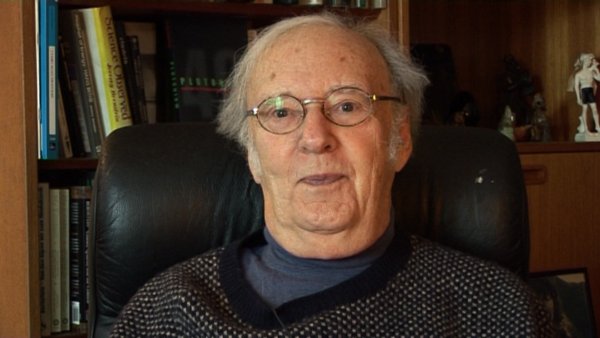NEXT STORY

Ageing is a dirty trick
RELATED STORIES

NEXT STORY

Ageing is a dirty trick
RELATED STORIES


|
Views | Duration | |
|---|---|---|---|
| 81. Freeman Dyson and the good life | 1 | 615 | 01:15 |
| 82. Subscribing to Woody Allen's thoughts on death | 1 | 562 | 01:04 |
| 83. The logic behind my personal library | 1 | 468 | 01:13 |
| 84. EO Thorpe: the card counter | 333 | 01:10 | |
| 85. The Black–Scholes model | 415 | 02:42 | |
| 86. Ageing is a dirty trick | 574 | 01:31 |

I got very interested in Black-Scholes. I had a lady friend once and she said, tonight we're having dinner with a friend of mine and she's bringing her boyfriend, whose name is Myron Scholes. I never heard of Myron Scholes. And she said, he's going to win the Nobel Prize. I said, 'Well, that's interesting. In what?' She said, 'Well, in economics. He's worked on derivatives'. I thought oh, this poor girl, derivatives is a thing in calculus. Newton invented the derivatives, this guy won't win a Nobel Prize for derivatives… no idea what he was talking about. He was a very pleasant guy and I never asked him anything about what he did at all. And we parted and I didn't see him again. And by God, he won the Nobel Prize in economics because he and Fischer Black and this guy I couldn't remember when we talked earlier, invented this equation where you can compute... the value of a derivative. It's a very strange thing. You want to value a stock option. Now what is a stock option? A stock option is an option to buy stock at some future price. How do you value something, which is going to be realised in the future? How do you do that? So what you have to have is some… what you're trying to do is you have to have some way of foretelling the future and then using it to retrodict the past. So it's quite peculiar. So this Scholes-Black equation is a way of evaluating the future behaviour of the stock market. And it works by using essentially the same way in which Brownian motion, which interested me. So it's a Brownian motion thing. The stock market moves sort of by random collisions and out of this you get this equation.
Born in 1929, Jeremy Bernstein is an American physicist, educator and writer known for the clarity of his writing for the lay reader on the major issues of modern physics. After graduating from Harvard University, Bernstein worked at Harvard and at the Institute of Advanced Studies at Princeton. In 1962 he became an Associate Professor of Physics at New York University, and later a Professor of Physics at Stevens Institute of Technology in Hoboken, a position he continues to hold. He was also on the staff of The New Yorker magazine.
Title: The Black–Scholes model
Listeners: Christopher Sykes
Christopher Sykes is an independent documentary producer who has made a number of films about science and scientists for BBC TV, Channel Four, and PBS.
Tags: Fischer Black, Myron Scholes
Duration: 2 minutes, 42 seconds
Date story recorded: 15th June 2011
Date story went live: 28 October 2011